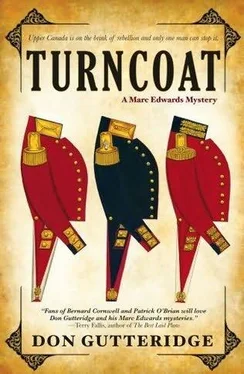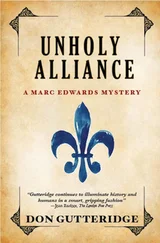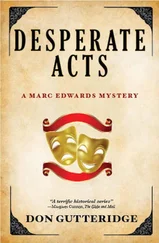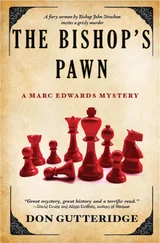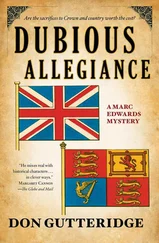Don Gutteridge - Turncoat
Здесь есть возможность читать онлайн «Don Gutteridge - Turncoat» весь текст электронной книги совершенно бесплатно (целиком полную версию без сокращений). В некоторых случаях можно слушать аудио, скачать через торрент в формате fb2 и присутствует краткое содержание. Год выпуска: 2003, Издательство: Simon & Schuster, Жанр: Исторический детектив, на английском языке. Описание произведения, (предисловие) а так же отзывы посетителей доступны на портале библиотеки ЛибКат.
- Название:Turncoat
- Автор:
- Издательство:Simon & Schuster
- Жанр:
- Год:2003
- ISBN:нет данных
- Рейтинг книги:4 / 5. Голосов: 1
-
Избранное:Добавить в избранное
- Отзывы:
-
Ваша оценка:
- 80
- 1
- 2
- 3
- 4
- 5
Turncoat: краткое содержание, описание и аннотация
Предлагаем к чтению аннотацию, описание, краткое содержание или предисловие (зависит от того, что написал сам автор книги «Turncoat»). Если вы не нашли необходимую информацию о книге — напишите в комментариях, мы постараемся отыскать её.
Turncoat — читать онлайн бесплатно полную книгу (весь текст) целиком
Ниже представлен текст книги, разбитый по страницам. Система сохранения места последней прочитанной страницы, позволяет с удобством читать онлайн бесплатно книгу «Turncoat», без необходимости каждый раз заново искать на чём Вы остановились. Поставьте закладку, и сможете в любой момент перейти на страницу, на которой закончили чтение.
Интервал:
Закладка:
“Erastus and I apprehended one of the blackguards a while back,” Child said. “What was his name now?”
“Isaac Duffy,” Hatch said, and his face lit up with pleasure at the memory. “Caught him trying to sell a bottle of His Majesty’s finest sherry to Emma Durfee, an item he’d most likely pilfered from some smuggler’s drop he knew about.”
“He’s in irons down in Kingston,” Child said, “but before we shipped him off, he gave us a lead to two scoundrels in the area we’d long suspected of actually hauling the stuff across the lake on the ice.”
“Jefferson and Nathaniel Boyle,” Hatch said. “Brothers who operated two so-called farms out past Mad Annie’s swamp.”
“Hatch and I hopped on our horses and rode right out there like a pair of avenging angels.” Child laughed, and Marc did too, at the image of Magistrate Child’s two hundred and fifty pounds of pampered flesh astride and agallop.
“Without a sheriff or constables?” Marc asked above Hatch’s chortling.
“I’d been after them Yankee cattle thieves for years,” Child said with sudden vehemence. “I had a pistol tucked in each side of my waistcoat, and Hatch here had his fowling piece. My God, I can still remember every moment of that ride.”
“By the time we got there,” Hatch said, “they’d already skedaddled, as they say in the Republic.”
“Those sewer rats can smell authority a mile away.” The squire sighed. “I hate smugglers of every stripe. They undermine the fragile economy here, flout the King’s law, and offer incentives to others to do the same. And when they’re Yankees to boot, I detest them as much as I do a traitor or a turncoat.”
“All we found were two abandoned wives, just skin and bone, and a dozen half-starved youngsters,” Hatch said sadly.
“Well, they haven’t been seen since,” Child said with some satisfaction.
“And when I took Winnifred out there with some food and clothes at Christmas,” Hatch said, “the women and children had packed up and gone. The whole lot of ’em.”
Marc had witnessed the effects of grinding poverty on the streets of London and never become inured to it, or to the callow disregard shown towards its victims by the prosperous and the morally blinkered. The thought of Winnifred’s charity warmed him in ways the brandy, cigars, and stimulating company had failed to.
Philander Child wished Marc well in his efforts on Sir John’s behalf, complimented him on his good manners, and offered his assistance if it should be required. Walking back to the mill, grateful for Hatch’s companionable silence, Marc went over the evening’s conversation. He concluded that he had been told much that had been intended and some that had not.
Coming up to the house, Marc suddenly said, “Who is Mad Annie?”
Hatch snorted. “You really don’t want to know that long, sad story.” He placed a fatherly hand on Marc’s shoulder and said with mock solemnity, “I’ll give you the gory details in the morning.”
Marc lay awake for a long while that night, mulling over what had been said or not said. What was really keeping him from sleep was the dread of interrogating Beth Smallman about two men whom she loved and who had been taken from her in the most horrific manner imaginable. At the same time, he was not prepared to discount any suspect, even an attractive and vulnerable one, in advance of the facts. But he was happy that the four gentlemen with whom he had just spent a most pleasant evening had themselves been together during the critical hours of New Year’s Eve. He was just about to drift off upon this comforting thought when he heard a door open and a familiar footstep in the hall outside his room.
He waited several seconds before easing himself out of bed, slipping the door ajar, and peering down the dark hallway. This time he caught a glimpse of white nightdress and a fleeting image of the female form undulating within it before the door to the back section of the house shut it out of sight. Then came the same giggle he had heard the previous night, the only difference being that the figure he’d just seen animating the nightdress was a head taller and a good deal more Junoesque than Mary Huggan’s. It was undoubtedly the handsome Miss Hatch.
SIX
Well, lad, what did you learn of value last night?” Hatch said to Marc, stabbing a sausage.
The question startled Marc, not because it was impertinent or sudden but because he had been absorbed in close observation of Thomas Goodall and his mistress, Winnifred Hatch. That they were lovers, and by all the evidence frequently and consensually so, could not have been inferred from the cool and formal intercourse between them over the Thursday morning breakfast table. Winnifred moved briskly about, neither smiling nor unsmiling, until the three men had been served, then sat down next to Marc across from her father and began her own meal. Mary Huggan soon joined her, and the two women exchanged pleasantries. Goodall, as was his custom, kept his eyes locked on his food, which he consumed rapidly but mechanically, as if eating were a duty. Like the miller’s, his hands were large, roughened by cold and searing sun, and shaped to the plough and axe-handle.
Was it possible that the proud Miss Hatch was ashamed to admit her attachment to such a plain and taciturn man? Or had it more to do with a sense of obligation to her father? Marc had begun to realize that he had much to learn about the ways of these country folk, and that such knowledge might be necessary to unravelling the mystery of Joshua Smallman’s death.
“Did we give you anything useful?” Hatch asked again, and he nodded towards the two women as if to say, “Keep it general.”
“Yes,” Marc managed to say. “Yes, you did. You gave me something definite to ask the gentlemen whose farms I plan to visit today.”
“That’s good, then.” Hatch reached across the table and, with Mary Huggan’s consent, tipped her uneaten egg and sausage onto his own plate.
“Thank you, Mary,” Hatch said, and the girl blushed to the roots of her pale hair. Winnifred gave her a sharp look, and she blushed anew.
“We’ll have to get that blush of yours repaired one of these days,” Hatch said impishly.
“Leave the lass alone,” Winnifred said, and before her father could recover from the rebuke, she turned to Marc and said, “You’re likely to find most of the surplus grain among the farms on the Pringle Sideroad north of the second concession.”
Marc suddenly found her face, with its strong bones and dark, perceptive eyes, no more than a foot from his own, and he could hear the whisper of her breathing beneath the taut bib of her apron. Across the table, Thomas uttered a satisfying belch and pushed his chair back.
“Oh, why is that?” Marc said.
“They’re good Tories, of course,” Winnifred said, and Hatch let out an approving chuckle. “The Reformers on the Farley Sideroad,” she continued, “are too busy organizing petitions to get a decent crop in, or keep it from the thistles when they do.”
“Winnifred keeps all the accounts here,” Hatch beamed. “She knows the worth of every farmer in the district to the nearest shilling.”
“Don’t exaggerate,” Winnifred said, nudging Mary Huggan, who jumped up gratefully and began clearing away some of the plates. Goodall had already stumped out to his chores, unremarked by anyone.
“I’ll take your advice to heart,” Marc said gallantly.
“It would be more useful in the head, I believe.”
Mary knocked over a cup; Hatch reached out, caught it, and handed it back to the girl.
“Go put some more water on,” Winnifred said firmly to Mary. “I’ll finish up here.” She rose and began stacking the dishes. There wasn’t an ounce of self-consciousness anywhere in her body. “I wish you good hunting, Ensign Edwards,” she said with cool solicitude as she went back into the kitchen.
Читать дальшеИнтервал:
Закладка:
Похожие книги на «Turncoat»
Представляем Вашему вниманию похожие книги на «Turncoat» списком для выбора. Мы отобрали схожую по названию и смыслу литературу в надежде предоставить читателям больше вариантов отыскать новые, интересные, ещё непрочитанные произведения.
Обсуждение, отзывы о книге «Turncoat» и просто собственные мнения читателей. Оставьте ваши комментарии, напишите, что Вы думаете о произведении, его смысле или главных героях. Укажите что конкретно понравилось, а что нет, и почему Вы так считаете.
